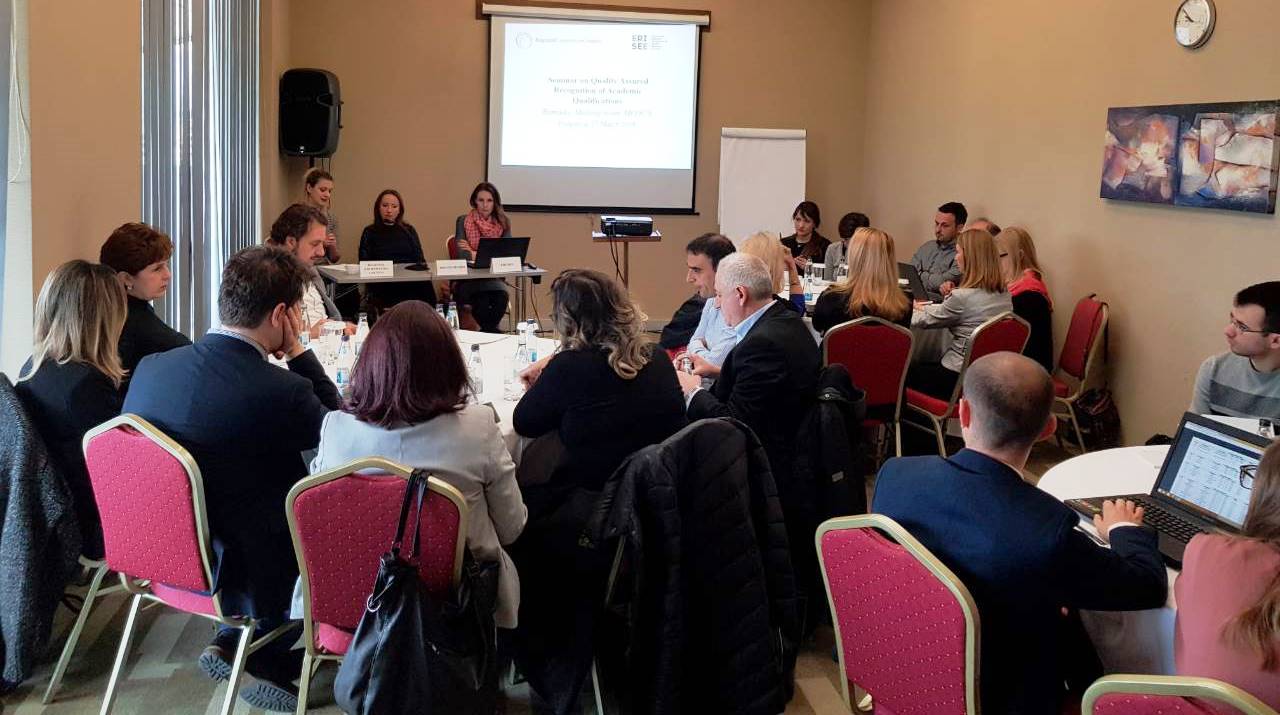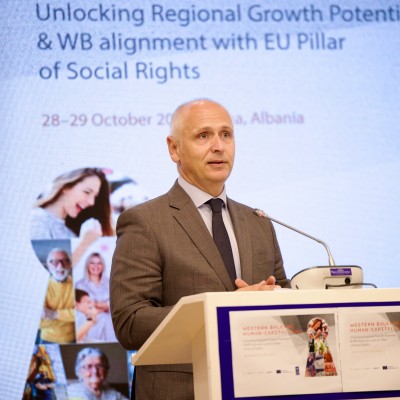Exploring models for automatic recognition of academic qualifications in Western Balkans and working on design of a joint exercise and online system for recognition of academic qualifications in Western Balkans
27 March 2018

Workshop on Automatic Recognition of Academic Qualifications in Western Balkans, Podgorica, 27 March 2018 (Photo: RCC/Elvira Ademovic)
Podgorica - The Joint Working Group on Recognition of Academic Qualifications (WG RAQ) adopted the Group’s Terms of Reference and the Plan of Work, at their second meeting jointly organized by the Regional Cooperation Council (RCC) and Education Reform Initiative of South Eastern Europe (ERI SEE) in Podgorica on 26 March 2018.
The RCC team briefed the participants on the progress in implementation of Mobility component of the Multi-Annual Action Plan for Regional Economic Area (MAP REA) aimed at removing obstacles to mobility of students, academics, as well as highly-qualified workforce and professionals in the region. The participants agreed to further intensify the cooperation ahead of the high-level EU - Western Balkans Summits in Sofia and London to deliver on the objectives agreed year ago at the WB Leader’s Summit held in July in Trieste. Specifically, the participants will have agreed on principles of a model of recognition of academic qualifications, as well as on the concept of a joint online system; and will kick off a joint exercise on recognition of academic qualifications ahead of 17th May 2018.
The joint exercise on recognition of academic qualifications aims to identify, analyse and discuss similarities and differences in recognition of foreign degrees in MAP REA participating economies, and suggest further joint action to decrease those differences. The participants also discussed concept and ideas for a joint online system as well as explored some available models of recognition of academic qualifications between Western Balkan economies.
Back-to-back with the meeting of WG RAQ, Podgorica hosted the Workshop on Automatic Recognition of Academic Qualifications, which elaborately explored possibilities for introduction of model and practices for recognition of academic qualifications in the region based on quality assurance.



